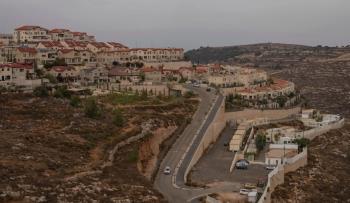Alwaght- President of Palestinian Authority Mahmoud Abbas has decreed on Friday parliamentary and presidential elections to be held this year, the first such votes in 15 years.
According to a decree issued by Abbas’s office, the Palestinian Authority, which has limited self-rule in the Israeli-occupied West Bank, will hold legislative elections on 22 May and a presidential vote on 31 July. If there would be no runoff to the parliamentary election, the Palestinian National Council vote would be held on August 31.
This decision, an outcome of Hamas-Fatah agreement, faces some questions on its arrangement possibilities.
Alwaght has talked to Hasan Hanizadeh, an expert of Palestinian affairs, asking him about the reasons and aspects of the new elections.
Mr Hanizadeh believes that the decree by Abbas is based on three political and field realities. One reality is the end of the presidency of the US President Donald Trump and assumption of power by Joe Biden. Over the past four years, Trump unwaveringly stood by the Israeli regime and put heaviest pressures on the Palestinian Authority and people. For example, he recognized Al-Quds as the permanent capital of the Israeli regime, pressed for the “deal of the century” that officializes the Israeli settlements in the West Bank and rejects the right for the refugees to return home, and also supported ongoing Gaza siege. Change of the president at the White House has caused some changes in the Palestinian political equations.
“The second reality is the Israeli snap parliamentary election, the fourth in two years. This election will possibly change the structure of power in the Israeli regime and end Prime Minister Benjamin Netanyahu’s political life. The third reality is the Palestinian national reconciliation. Having in mind that Hamas and the Islamic Jihad movements over the past years bore heavy pressures and so they are expected to win the majority of the seats in the National Council. This will possibly be the last election Abbas would hold. Huge changes to the Palestinian Authority’s structure may be arriving.”
Asked about the influences of Hamas-Fatah agreement on the home political developments, Mr Hanizadeh answered that whenever Hamas and Fatah entered national reconciliation project, we observed rise of a powerful bloc in the face of the Israeli regime.
“In the current conditions, the Palestinian people think that they lost their past political gains and prestige, countries such as the UAE, Bahrain, Morocco, and Sudan normalized their ties with the Israelis and even Saudi Arabia is secretly joining them. It seems that the Palestinian reliance is now on the internal potentials as the Palestinian factions are left frustrated with the reactionary Arab regimes. In other words, the Palestinian groups have reached the belief that they need to form a united front and should not expect Arab supports. This self-reliance can strengthen the Resistance front in confrontation of the Zionist regime.”
Mr Hanizadeh also commented on the role of Saudi Arabia in the future of the Palestinian developments. He said that the Saudi rulers have lost their place among the Palestinian people and political factions for their secret relations with Tel Aviv. What is happening in Palestine is out of the control and will of the Arab countries. “That gives every reason to think that the Arab regimes will have no role in the upcoming political developments of Palestine.”
Mr Hanizadeh also talked about the possibility of implementing Hamas-Fatah agreement in relation to the election, saying that should election be held, the power would gradually flow to Hamas.
“Hamas will likely win more seats in the next parliament. Since the Palestinian past gains are undone because of betrayal of the Arab regimes, now Hamas role as a powerful front maker against Tel Aviv would be more pronounced.”



























